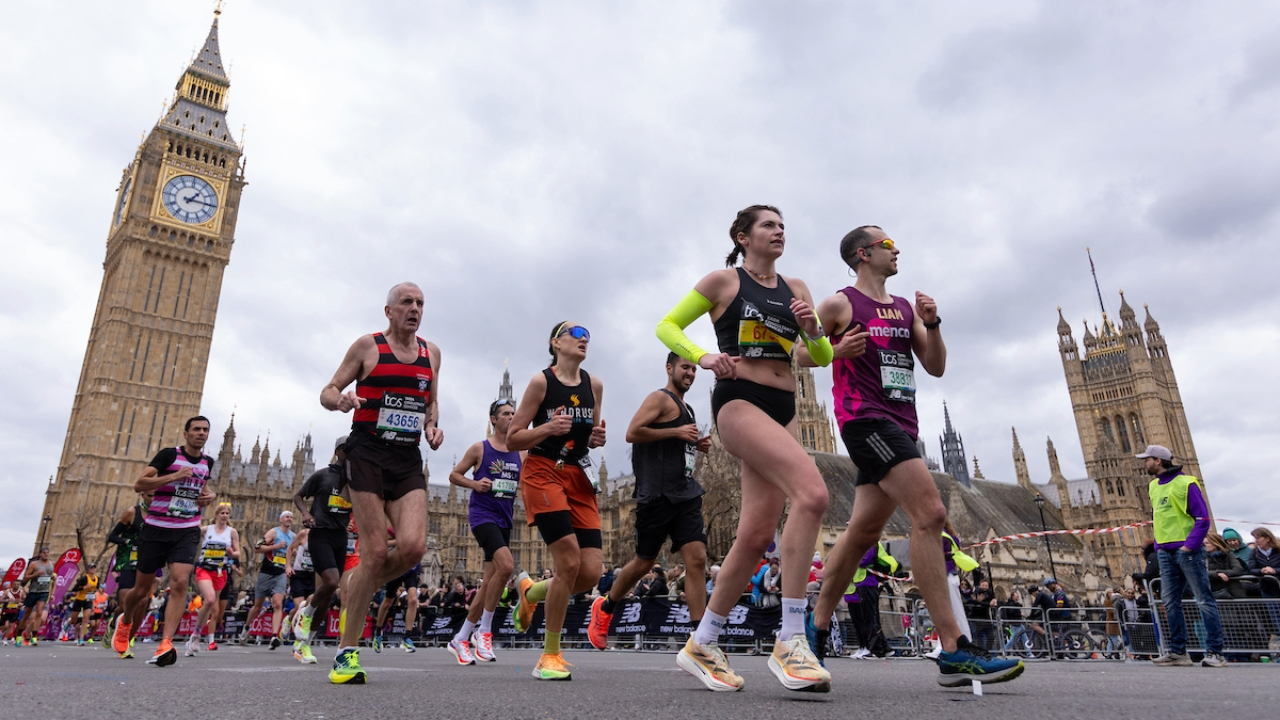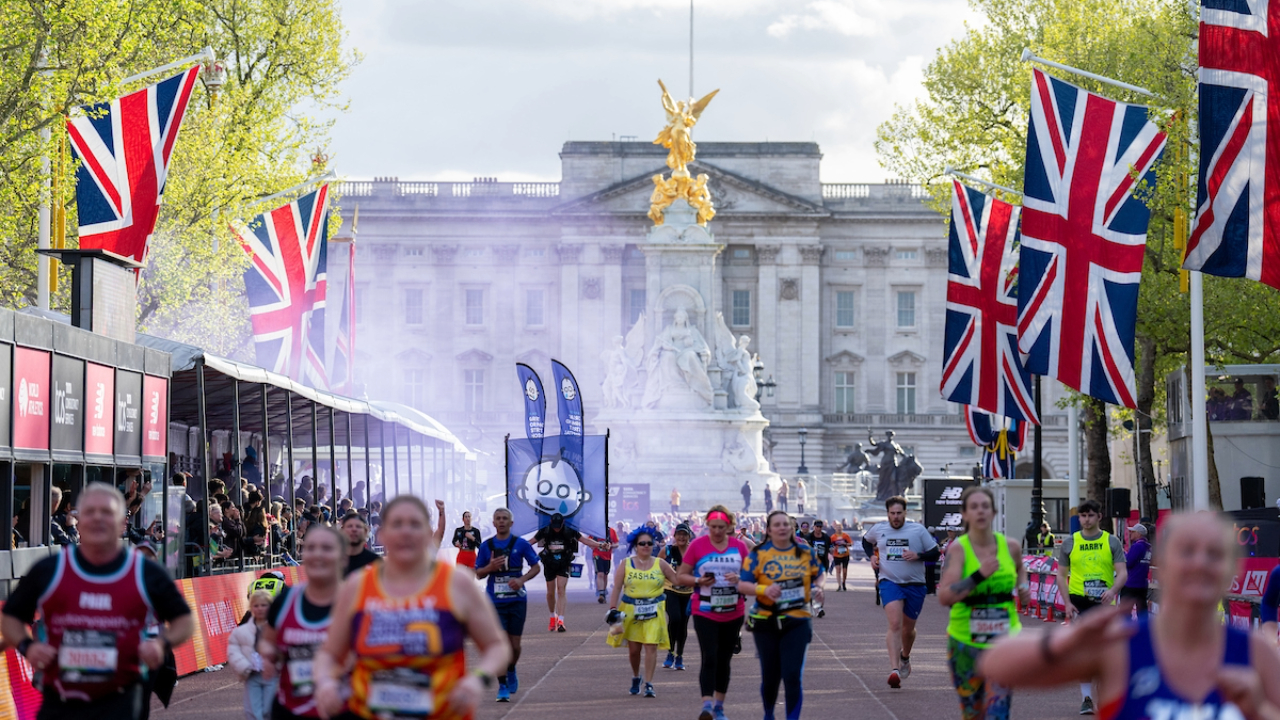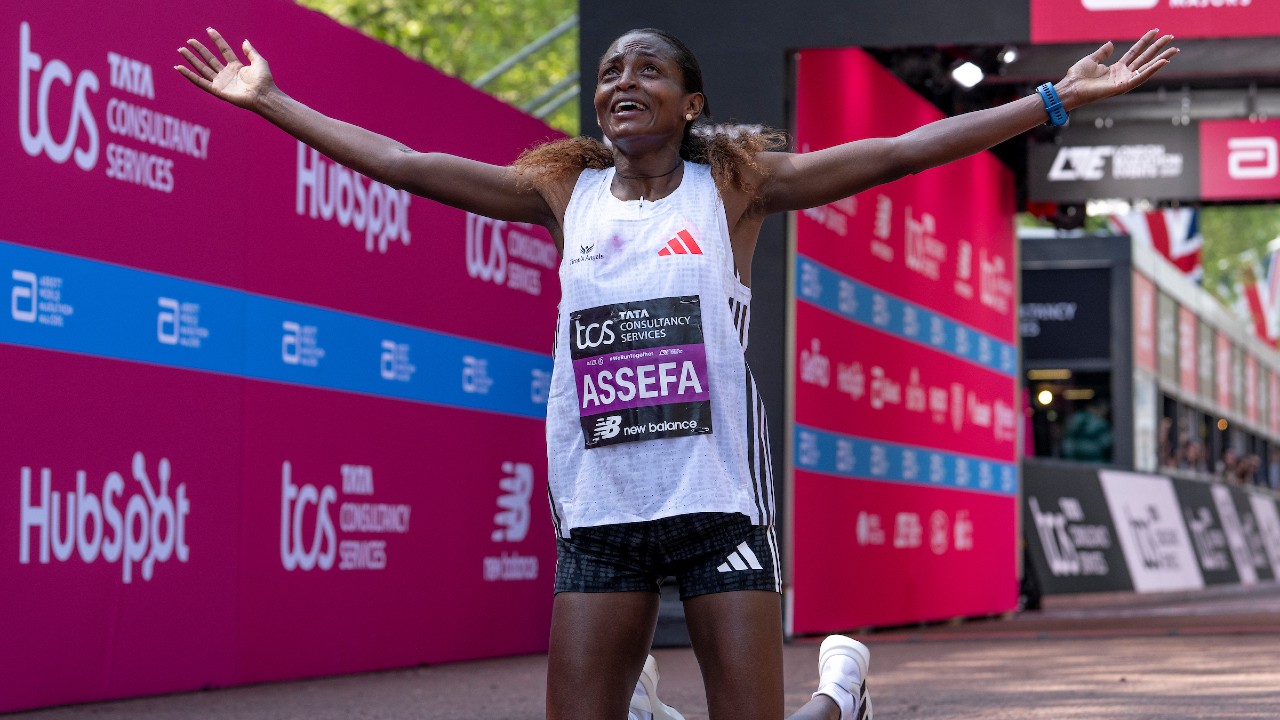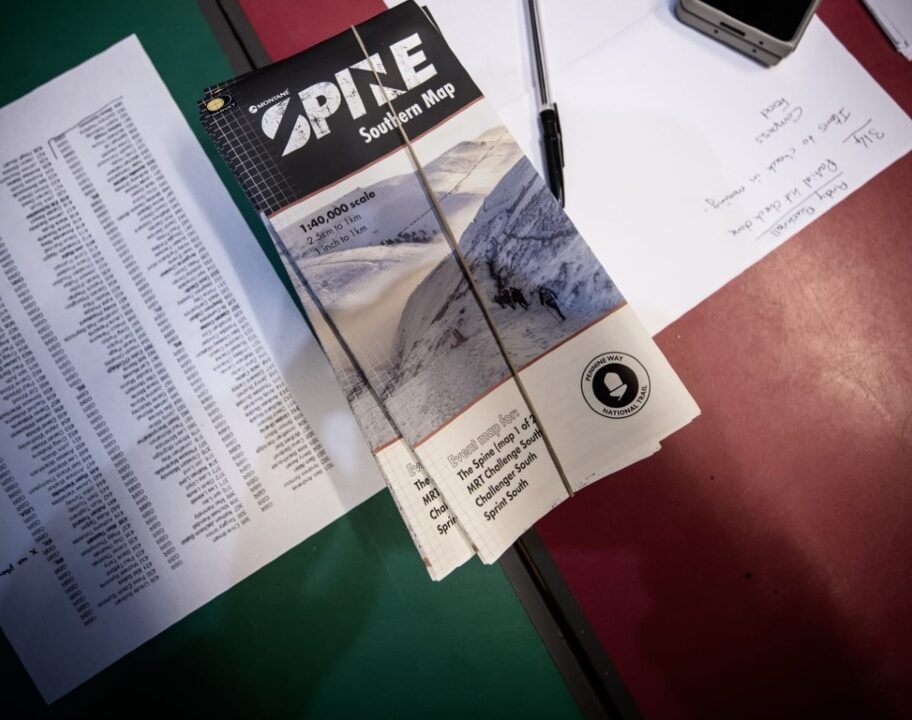The 2025 edition of the TCS London Marathon, one of the 7 Abbott World Marathon Majors, will celebrate 45 years of the 26.2 mile distance race taking over the streets of the UK’s capital.
Starting out in 1981 with little over 6,000 finishers, the 2025 London Marathon is set to make history and overtake the New York City Marathon to become the world’s largest marathon race.
With a stellar elite start list and more amateur runners than ever set to toe the start line. We’re kicking off our countdown to the London Marathon 2025 by taking a look back at the history of the race and the records that have been set on this legendary marathon course.
How it started: the history of the London Marathon
The London Marathon as we know it today first took place on 29 March 1981, founded by Chris Brasher and John Disley. Inspired by the New York City Marathon, the Olympic Steepchase medallists set about bringing a similar mass participation marathon to London. However, that wasn’t the first time a marathon was held on the streets of London.

In 1908, a marathon took place in London as part of the London 1908 Olympic Games. The route started in the grounds of Windsor Castle and finished at the (now demolished) Royal Box in the Olympic stadium in White City. The 1908 London Marathon was, at the time, the longest marathon since the modern Olympic games began. While the distance now is a set 26.2 miles, before the 1908 race the previous longest Olympic ‘marathon’ was at the 1896 Athens Games, spanning approximately 25 miles from Marathon to Athens.
The Poly – London’s original marathon
After that 1908 Olympic marathon in London, it wasn’t a case of a 74 year wait for the marathon distance to return to the UK’s capital. A ‘London Marathon’ of sorts was established in 1909, called the Polytechnic Marathon (aka The Poly), founded by the Polytechnic Harriers. The route started in the grounds of Windsor and finished at various points in London. Women weren’t allowed to participate – though in 1926 Violet Percy did complete the race. Her time was recorded as ‘unofficial’ for 37 years afterwards, because she was a woman. In 1928, the IOC banned females from competing in any distance above 200m. It wasn’t until 1960 that women were allowed to compete in the 800m and while the 1970s saw women permitted to race in the Boston and New York marathons. It took until 1984 for a women’s Olympic marathon to take place.
The Poly ran until 1996, meaning for several years there were two marathons taking place in London.
The inaugural London Marathon
The 1981 London Marathon had 20,000 applicants. 7,747 of those applicants were accepted, and 7,055 started the race. There were 6,255 finishers. Women were permitted to race, but fewer than 300 of those 6,255 finishers were women.
The race quickly gained traction, with the 2nd edition seeing some 15,115 finishers cross the line. Since 1983, the London Marathon has typically always taken place in April. However, the Covid pandemic saw the marathon postponed in 2020, and in 2021 and 2022 it took place in October. It returned to the spring in 2023.
How many people have run the London Marathon?
Since that inaugural event in 1981, over 1.3 million people have finished the London Marathon. In 1988, finishers exceeded 20,000 for the first time. By 1999 the 30,000 barrier was broken and the 40,000 mark was surpassed in 2018.
In 2024, 53,890 people completed the London Marathon. And in 2025, a world record breaking number of finishers crossed the line – 56,640 runners. A huge increase on the less than 7,000 finishers in 1981! Figures shared by the TCS London Marathon state that 840,318 people applied via the public ballot for 2025. And female participation numbers have grown exponentially too – 49% of those UK ballot applicants were female.

Along with currently being the world’s largest marathon, the London Marathon also currently holds the status for the world’s largest annual one-day fundraising event. Since 1981, the race has raised over £1.3 billion for charity.
How many people watch the London Marathon?
Alongside being a huge participation event, the London Marathon also captures the imagination of a vast number of spectators. Abbott World Marathon Majors estimate that over 750,000 people will line the streets of London on race day to cheer the runners on.
London Marathon is also streamed live on the BBC in the UK and on other outlets around the world, attracting somewhere between 4-5 million viewers. Stay tuned for our full race preview which will give you all the details you need to tune in LIVE this year!
When did London become a Marathon Major?
The London Marathon was one of the original five world renowned marathons brought together to form the World Marathon Majors series. The other four races were Boston, New York, Chicago and Berlin. The idea was to create a year-long championship series where elite runners could compete for points and an overall season title.
The Tokyo Marathon was added in 2013 – creating the ‘big six’ with many amateur runners aiming to qualify and tick off all 6 to get their six star finisher medal. 2025 sees another new addition – the Sydney Marathon.
Read more about the World Marathon Majors here.
London Marathon records – what are the fastest finish times in London?
The current official world record marathon times were both set at the Chicago Marathon. But even so, London is no stranger to fast finish times.
On the elite men’s side, the late Kelvin Kiptum holds the course record for the London Marathon. He ran a 2:01:25 in 2023, and later that year would go on to set his world record time of 2:00:35 in Chicago. Many had him tipped as the man who could become the first runner to go sub-2 in an officially recognised race. But tragically, Kiptum was killed in a car accident in February 2024.
Coming into the 2025 London Marathon, many eyes will be on Jacob Kiplimo. He ran a blisteringly fast 56:42 half marathon in February, obliterating the world record. But London will be his debut over the 26.2 mile distance, so it remains to be seen if he can hold the pace over the full marathon.
Paula Radcliffe or Tigst Assefa? Why the women’s London Marathon record time is a little more complicated
Technically, the great Paula Radcliffe – who recently made an impressive return to the marathon distance in Tokyo – hold the women’s course record for the London Marathon. Her 2:15:25 time has stood since 2003.

But that was in a ‘mixed’ race – men and women started at the same time. So there’s another record for the ‘women-only’ London marathon. In recent years, the format has been changed so the elite women start the race before the elite men, and the masses. Up until 2025, the world record for a women’s only field was held by Peres Jepchirchir who ran a 2:16:16 at the 2024 London Marathon. But at the 2025 London Marathon, Tigst Assefa stormed to victory and broke the women’s only world record in the process, finishing in 2:15:50.
Wheelchair records
Marcel Hug (known as the ‘Swiss Silver Bullet’) is the defending TCS London Marathon wheelchair race champion – he’s won the race 4 years in a row. Unsurprisingly, Hug holds the men’s wheelchair course record with his finish time of 1:23:44 set in 2023.

The women’s wheelchair record was broken by fellow Swiss athlete Catherine Debrunne in 2024, who won the race with a 1:38:54 finish time.
When was the 2025 London Marathon and what happened?
The 2025 edition of the London Marathon took place on Sunday 27 April. After over 840,000 applied for the ballot, a record breaking number of runners crossed the finish line.
Check out our dedicated London Marathon section to read the race report.
Head to our Marathon news section for the latest updates on London and the other Major Marathons.










